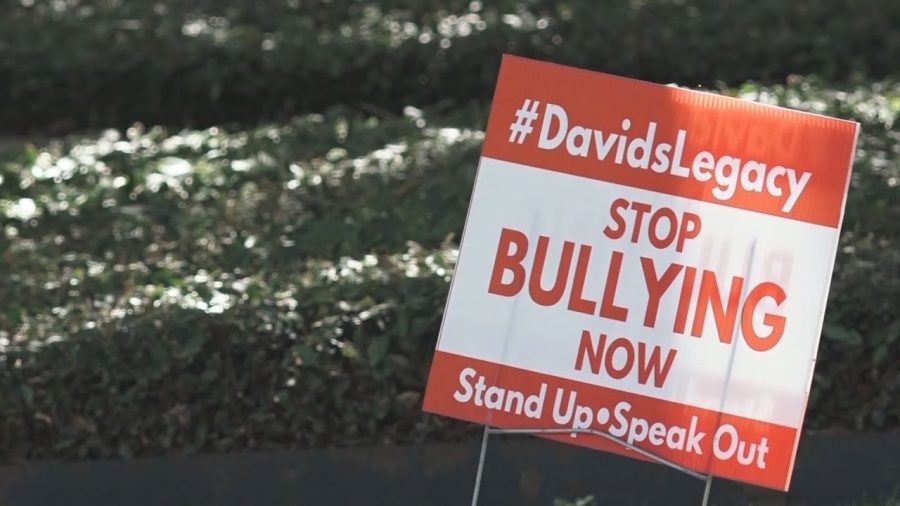New law gives schools power to address cyberbullying
As the lives of the youth shift continuously toward being always plugged in, so to do their problems. The last generation may remember bullying as physically imposing bullies shoving victims into lockers and stealing lunch money, but today bullying has shifted online. With the propagation of social media like Twitter and Instagram, it’s easier than ever to become involved in the lives of others, for better or for worse.
Take the story of sophomore Yasmin Herrera. When Yasmin was in the seventh grade, she decided to create an Instagram account.
“I just posted cringey things, very cringy things,” she said.
Eventually things took a turn for the worst.
“People started going ‘why would you post that,’ or ‘you don’t look pretty in that,’ or ‘you should lose weight,’” she said.
It encouraged others to follow suit, and soon Yasmin found herself being harassed on the school grounds itself.
“Eventually I got tired of it and I logged off my Insta but it didn’t stop there. It followed me to the halls,” she said.
Technically speaking, the school was powerless to stop it. That is, until Governor Greg Abbott signed Senate Bill 179 on September 1, 2017. Also known as David’s Law, SB 179 will act as a means of putting some power into the school’s hands to prevent cyberbullying.
AHS School Resource Officer Jason Stevens, said that while the department is still learning the fine print of the new law, the new education code will empower the school to take action against cyberbullying.
“For cyberbullying to be considered a criminal act, you have to be either persuading someone to commit physical harm to themselves or someone else,” he said.
Doing so is now a Class C felony, with punishments up to time at Turning Point. However, he did admit that the law could have some logistical issues.
“The problem will always be, did that person send the message,” he said.
Even on Twitter, where each account is attached to a specific individual, accounts can be hacked. Not to mention, some people forget to sign out.
Officer Stevens did stress, however, “that if someone is actually experiencing cyberbullying that rises to the level of a criminal offense, they do need to report it.”
As far as the actual enforcement of the law among the student body, assistant principal Juan Negrete offered some insight.
“We refer to the Student Code of Conduct for those things,” he said.
The first step is what is referred to as the stay away agreement, in which “the student, who ever the victim is, is supposed to stay away from whoever the bully is, and the same thing for the bully,” said Negrete.
According to Negrete, the two students are required to cut contact both physically and on the internet. If the agreement is broken, there are further consequences for both parties, which can involve OCS, Choices and even Turning Point.
Negrete said that the recent culture shift toward an always online lifestyle may have exasperated the problem of cyberbullying.
“I believe that we have a lot more freedom online than in person, we tend to not reflect on what we say,” he said. “Sometimes we just say things because it’s easy to say, and the thing about saying things online is whatever you say is going to stay there.”
Both Officer Stevens and Negrete said that the student body was relatively good about cyberbullying, with few serious cases reported.

Hello, Comrades! My name is Declan Quinn and I'm a returning staffer of the senior class. I'm in AcDec and Art Club but trust me, I'm a fun communist.

